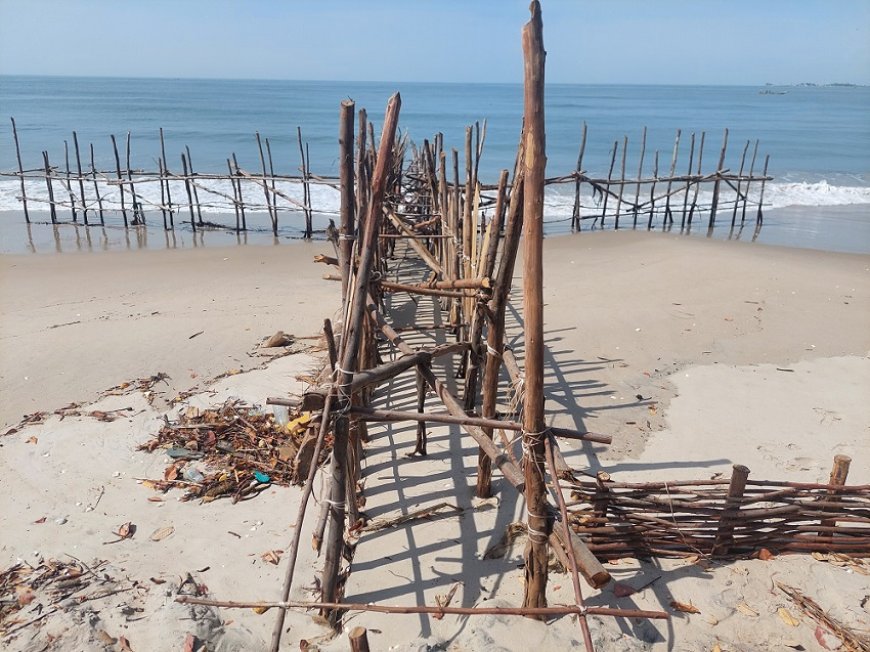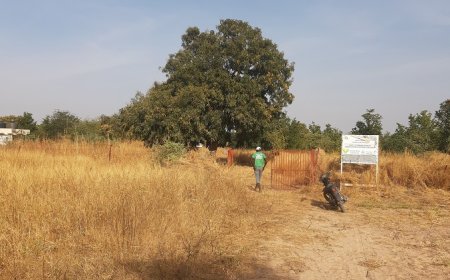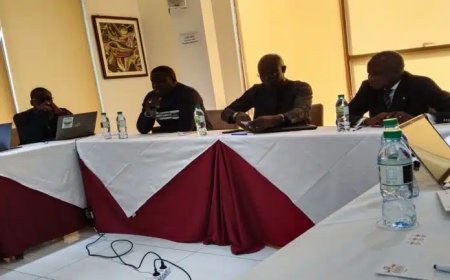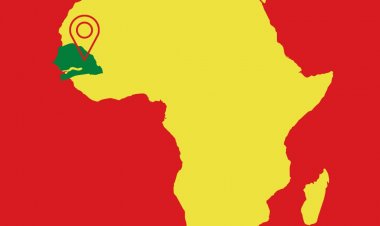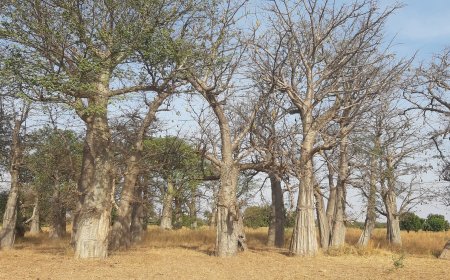Executive Summary
Context
This report presents findings of research on climate change adaptation policies, strategies and local actions in Senegal, West Africa. It highlights locally led adaptation (LLA) strategies, practices and lessons that can inform and guide the implementation of the Nationally Determined Contributions (NDCs) and climate actions at the local and national levels. African countries such as Senegal are implementing their climate change adaptation strategies as part of the NDCs through various climate actions carried out according to the priority sectors defined. Indeed, each priority adaptation sector in Senegal (agriculture, livestock, fisheries, water resources, flooding, coastal erosion, infrastructure, health, biodiversity) has identified national adaptation options that should be implemented locally.
Thus, the question is whether endogenous responses to climate challenges at the local level or community adaptation practices were taken into account in the process of developing and implementing the NDCs. To support Senegal in addressing the challenges of NDC implementation and to integrate the needs of communities in terms of LLA, the Africa Policy Research Institute (APRI), in close collaboration with ENDA Energy, conducted research on climate change adaptation policies, strategies and local actions across the country.
Objectives
To effectively contribute to the implementation of climate action in Senegal, the mainstreaming of community-led adaptation requires the removal of barriers, constraints and challenges in terms of the skills, funding and leadership of local governments. It is in this context that the research project ‘Climate adaptation, strategies, practices and initiatives: Issues and pathways in Senegal’ was initiated by APRI. Its objectives are to understand and document:
- the status, needs and priorities for climate actions in Senegal;
- the adaptation priorities and needs of local communities;
- the policies, strategies, practices and initiatives available at the national and community levels to address adaptation needs;
- the implementation of commitments according to Senegalese stakeholders’ priorities for climate action;
- the challenges, barriers, opportunities and entry points to further locally led climate adaptation;
- the potential opportunities and entry points to support and encourage effective and sustained adaptation action for at-risk and vulnerable communities by national international actors.
Approach and methodology
The research project was implemented in Senegal through the establishment of a framework of collaboration and dialogue between in-country-based scientists, policy makers, practitioners and local communities. This co-creation and collaboration with diverse stakeholders helped to analyse the climate governance context, gaps, challenges and knowledge needs on adaptation for a more just and inclusive climate action. It also helped to interrogate the alignment of local knowledge and endogenous adaptation knowledge with the adaptation options of the NDCs and other climate action policies and strategies, and to draw insights on how the national adaptation policies and strategies can benefit from local knowledge, experiences, practices and strategies to support effective and sustained adaptation at the local, national and global levels.
The project implementation was based on the following methods:
- A review and analysis of relevant documents such as the NDC, National Adaptation Plan (NAP), adaptation policies, national and local development policy planning, climate governance and LLA for mapping national climate action initiatives, with a focus on the design and implementation of NDCs through the lens of LLA.
- Consultation of stakeholders at different scales and categories of actors, including two stakeholder consultation and sharing workshops.
- Deep dives focusing on key priority adaptation sectors with i) food security in the climate-smart village of Daga Birame (agriculture sector); ii) the Dionewar Island REVARD project on coastal erosion control (coastal zones sector); iii) the early warning system initiative of Widou Thiéngoly concerning the mitigation of health impacts of heatwaves (health sector); and iv) a qualitative analysis of data and information collected with all the methods applied.
Key findings and main messages
Mapping climate policies, strategies and actions at the national level The multidimensional impacts of climate change on production systems, living conditions and social well-being require the identification and implementation of adaptation options and actions according to the priority sectors defined in the NDC.
With a view to providing more integrated, effective, efficient and sustainable responses to climate challenges, the State of Senegal has put in place a harmonised framework of actions between the Emerging Senegal Plan (PSE) 2035, the 2030 Agenda Sustainable Development Goals (SDGs) and the NDC 2030. This framework takes adaptation into account in the planning of economic and social development policies, especially through the development and implementation of NAPs for priority sectors such as agriculture, coastal zones and health.
However, the priority sector adaptation options do not yet sufficiently integrate local community-led adaptation practices and strategies. Behind this weak integration of the needs of community-led adaptation lie huge barriers in financing. That climate governance struggles to be decentralised or domesticated at the territorial level is also a significant constraint.
Indeed, the financing needs for climate change adaptation measures associated with the NDC (USD 14.5 billion by 2030) are beyond the reach of the national budget and depend largely on the contribution of technical and financial partners (USD 12.725 billion). Thus, uncertainties in the mobilisation of climate funds compromise not only Senegal’s commitments to combat climate change and access to funding for communities to implement local adaptation strategies and practices, but also the climate governance model. The challenge of climate financing emphasises the need to mobilise domestic resources to sustain climate actions in the long term.
In Senegal, a diverse range of actors are engaged in climate actions, including technical agencies and directorates of the government, non-governmental organisations (NGOs), and private sector, academic and other international organisations. These stakeholders are implementing a range of policies, practices and strategies aimed at addressing climate change challenges. Stakeholders increasingly share the view that on-the-ground implementation of adaptation actions at sub-national levels remains inadequate.
Key findings from case studies
Despite limited support from the central government, LLA is a reality in Senegal. It is well aligned with the priorities of the NDC and with other national policies and strategies designed to deal with the impacts of climate change.
Findings from the three case studies in the Daga Birame, Dionewar and Widou Thiéngoly areas on LLA for the NDC priority sectors of agriculture, coastal zones and health show that the impacts of climate change on production systems, livelihoods and social well-being are the main sources of motivation for communities to engage and mobilise for climate action or governance. This awareness and commitment is the basis for successful, effective and sustained adaptation actions.
Locally led adaptation presents clear co-benefits for climate action and sustainable development at both the community and national levels. However, the adaptation practices and strategies developed by the communities have a generally low level of consideration in the actions of the central government in terms of policy development and implementation and related governance. Such a low level of integration, even into local development plans, has been materialised by the obstacles and constraints related to direct access to climate finance, and the strengthening of technical and organisational capacities in the implementation of climate policies at the local level. Additionally, the design and implementation of policies is siloed, with limited local and community stakeholder involvement – another major obstacle to effective and sustained adaptation actions.
The lack of financing coupled with the increasing cost of adaptation to climate change is a significant obstacle to adaptation action at both the national and local levels. This is compounded by a lack of access to available finance and technical and scientific capacity, which limits the contributions and efficiency of local actors, and hence the country’s overall climate action. Access to climate finance and technical capacity in the development of climate projects are inextricably linked in that stakeholders must be able to demonstrate climate additionality and accountability to justify the relevance and soundness of the project.
However, local and community stakeholders are often a long way from having this capacity if they do not have the support of state technical services.
The relevant lessons and best practices learned from our three case studies on LLA initiatives in the areas of agriculture, coastal zones and health demonstrate the real capacity of communities to identify and implement key adaptation strategies that can contribute to improving the effectiveness and efficiency of climate action in the country.
Main message of the report
The main results and conclusions of the research conducted on climate action and the implementation of adaptation policies in Senegal lead to several key messages:
- Senegal promotes a sectoral and territorial approach to implement climate action for connecting interventions from the NDC, the PSE for 2035 and the country’s SDGs of the 2030 Agenda.
- The country is making appreciable progress in implementing the adaptation policies defined in the NDC, though there are large inequalities in climate resilience interventions between sectors and territories.
- Lessons learned from the case studies highlight the capacities of local communities to identify and implement adaptation strategies and solutions well aligned with the NDC adaptation options and actions with the support of technical services, civil society and NGOs.
- The climate-smart village model of LLA in Daga Birame relies on levers of community mobilisation and participation. These are based on the need to preserve agricultural production systems and income-generating activities that ensure the community’s sustainability and commitment to climate action with support from national structures.
- The Dionewar community’s model of reactive adaptation to coastal erosion is based on a flexible, nature-based solution with Maltese groins. It is seen by the people as a means of both limiting the advancing sea and preserving production systems and income-generating activities largely dominated by traditional grazing and local tourism.
- Widou Thiéngoly’s model of reactive and spontaneous adaptation, based on the establishment of an early warning system for the adverse effects of heatwaves on human health, is considered by the community and local authorities as one of the most effective ways to adapt to the health impacts of rising temperatures.
- Better synergy and links between NDC adaptation options and local community practices and strategies in climate action implementation processes in Senegal are required to i) increase access to the evidence-based knowledge on LLA which informs climate policies, ii) increase access to the local technical capacity and competence which mobilises climate funds, and iii) integrate endogenous adaptation practices in climate policies.
Overall, given the alignment between the adaptation options of the NDC and LLA, action at the community level could be considered an important and relevant driver of climate action in Senegal. However, enhancing the effectiveness of LLA actions and policies, along with implementation strategies at the national level, requires a series of actions. These encompass gaining a clear understanding of existing strategies and practices, documenting them and ensuring the visibility of local adaptation strategies and practices. It also involves actively considering local opportunities to tackle climate challenges and making sustained efforts to overcome obstacles related to accessing knowledge and information. This includes addressing issues such as existing policies, financial constraints, technical assistance and implementation support.
Report structure
The rest of the report is organised into four sections.
Section 1: an introduction giving a global overview of climate change according to the country context, the adaptation conceptions and the project approach and objectives.
Section 2: mapping the climate action landscape with a focus on NDC priority areas, adaptation policies, local practices, stakeholder mapping and engagement, and financial Aspects.
Section 3: case studies documenting the communities’ practices on adaptation in the sectors of agriculture, coastal zones and health.
Section 4: a general analysis and discussion focused on the value added by LLA, the alignment and coherence with the NDC, the importance of the project, as well as the gaps, challenges and opportunities.
Insights into Senegal’s climate change policies, initiatives and local actions
About the Author
Dr. Ibrahima Sy is a Senior Climate Change Fellow at APRI. He is currently a Senior Lecturer in the Department of Geography at the University Cheikh Anta Diop (UCAD), Dakar, Senegal. He is an Associate Researcher with the Centre for Ecological Monitoring (CSE) in Dakar. Dr. Sy previously worked at the University of Strasbourg as an Associate Professor and at the Swiss Centre for Scientific Research in Côte d’Ivoire as a Research Fellow. He has also coordinated research projects in Mauritania, Senegal, and the Ivory Coast in collaboration with national institutions such as the CSE and CR4D (Climate Research for Development). Dr. Sy’s areas of interest include Water Sanitation, Spatial Epidemiology, Public Health Environmental Policies, Climate Change, and Sustainable Development. He completed his PhD in Health Geography at the University of Strasbourg, France.
